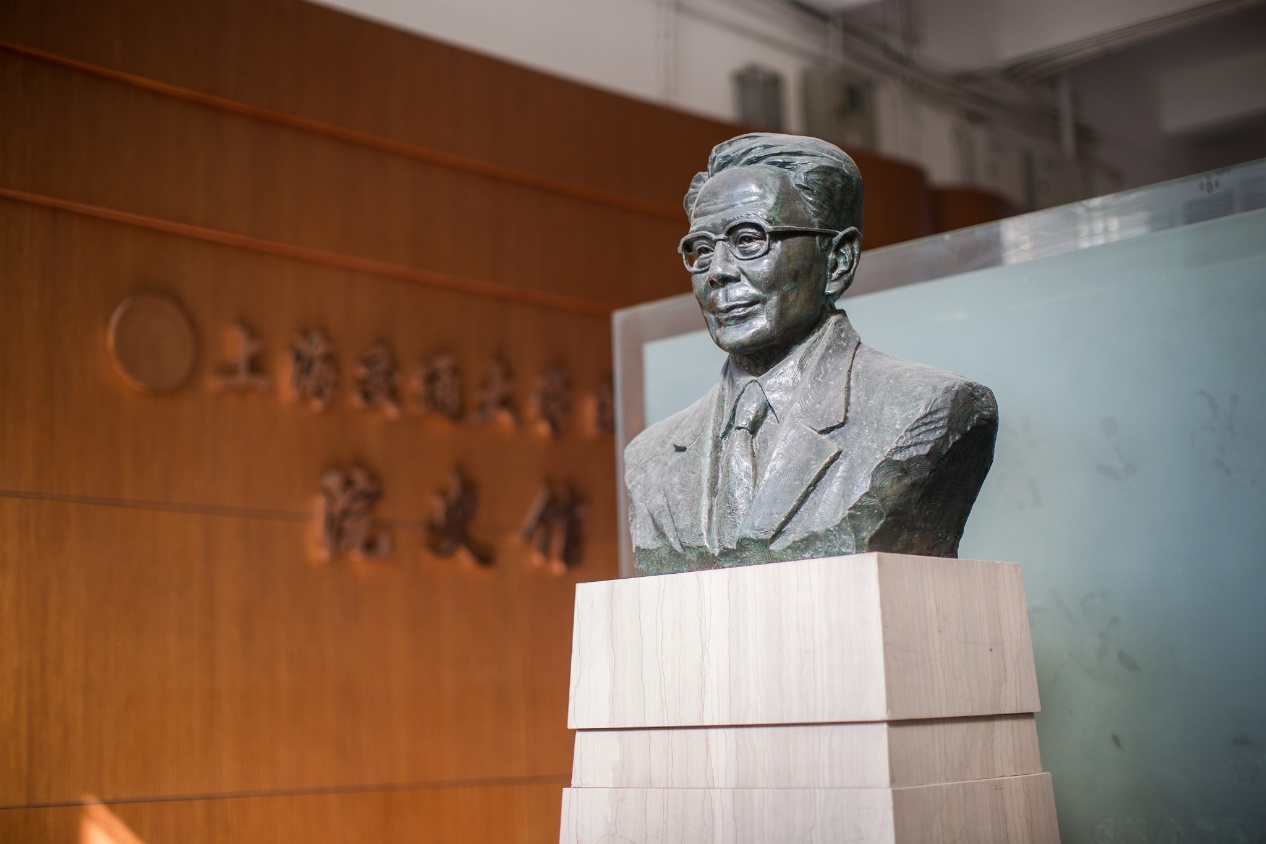
In the Red Mansion, there is a statue of Professor Yu He, one of the founders of China’s immunology and the founder of the Division of Basic Medical Sciences and the Institute of Immunology of Shanghai Second Medical College.
Yu He, born in Beijing and with Zhejiang Province’s Shaoxing Municipality as his native place, was a microbiologist and first-class professor. He graduated from Beijing Medical College in 1923, and received a doctor’s degree in hygiene and bacteriology from Harvard University in 1929 as China’s first doctor in bacteriology. Later, he translated Zinsser’s Textbook of Bacteriology — China’s first bacteriological translation, and published the first monograph Etiology. Yu He served as director and professor of the Microbiology Teaching and Research Section of Shanghai Second Medical College in 1952, and concurrently served as director of the Division of Basic Medical Sciences three years later. In 1979, he served as director of Shanghai Institute of Immunology and was appointed by the World Health Organization as director of the Collaboration Center for Immunogenetics.
In more than 60 years of scientific research, Yu He made outstanding contributions to China’s bacteriology and immunology. Using extensive experimental data, he refuted foreign scholars’ fallacy that Shanghai was the origin of Vibrio cholerae. He successfully developed a live attenuated measles vaccine, which filled China’s gap and played an important role in measles spread control. He participated in the rescue of Qiu Caikang, an extensively burned patient. To control Pseudomonas aeruginosa infection, he developed specific bacteriophages through repeated experiments to treat wound surfaces, contributing to the world’s miraculous treatment of burns.
Yu He was not only an outstanding medical master, but also a loyal patriot. He actively participated in the student movements as early as around the May 4th Movement. While studying abroad alone, he never forgot his original aspiration of saving China through medicine. After graduation, he gave up the generous research conditions and life benefits offered to him, and resolutely returned to China. He flatly rejected the Wang Jingwei regime’s promise to appoint him as director of the Health Bureau of Shanghai Municipality.
Yu He and his wife Liu Shuwei were Zhou Enlai and Deng Yingchao’s old friends. Deng Yingchao met Liu Shuwei when studying in Nankai. Though far apart, they kept in touch. Yu He was a then well-known Western medicine expert. Their relationship was not exposed to avoid suspicion and troubles during the Kuomintang’s rule. Before returning to Yan’an after the negotiation between the Kuomintang and the CPC broke down in November 1946, Zhou Enlai entrusted Yu He to keep three suitcases. Yu He didn’t ask about what were the items in the suitcases, and didn’t care about the troubles he might encounter because of the relationship with Zhou Enlai. What he thought about was how to live up to the trust and protect the suitcases. At that time, keeping the items of important members of the CPC meant a huge risk, but Yu He didn’t hesitate to keep them properly. Entrusted by Zhou Enlai, Deng Yingchao visited Shanghai in August 1949, inviting Song Qingling to Peking (now Beijing) and looking up her old friend Yu He. She took back the suitcases, which had been kept for three years, and thanked Yu He and his wife. When Yu He and his wife went to Beijing after the founding of the People’s Republic of China, Deng Yingchao greeted them in person at the station and Zhou Enlai invited them to dinner.
As a determined patriot warrior, Yu He always adhered to the ideal and faith that “the value of life lies in serving the people” and applied several times for joining the CPC. In 1984, Yu He finally realized his long-cherished wish and became an honorable CPC member at the age of 82.

